- Mobile App Development
10 Most Popular Mobile App Development Frameworks of 2024
Posted on 25-01-2024
Posted by Kashaf Mansoor
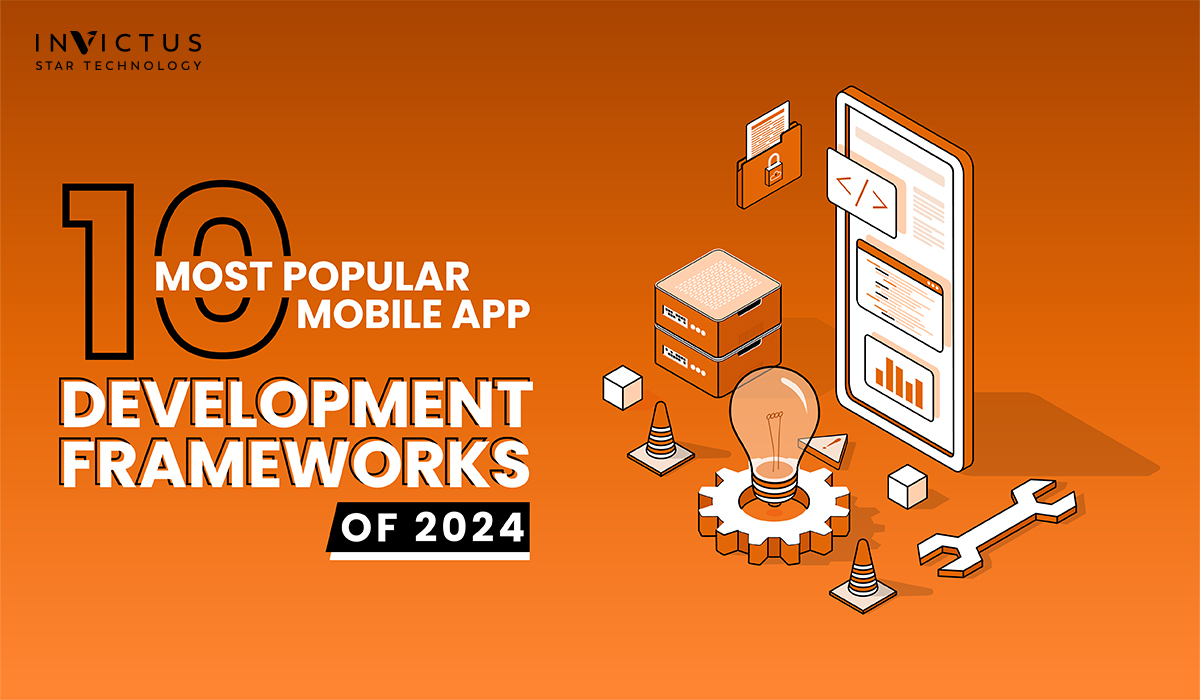
Forget hailing taxis, booking flights, or even ordering meals – your everyday routine is now a symphony of apps. From the gentle buzz of your alarm on an Apple Watch to the seamless Talabat app or Noon delivery app, every tap and swipe orchestrates your life. But have you ever wondered what magic lies behind these digital conductors? Let’s step into the world of the Mobile App Development Frameworks, the hidden maestro behind the app-tastic world we inhabit.
The mobile app world is experiencing explosive growth, poised to reach a staggering $673.80 billion projected market volume worldwide by 2027, according to Statista. Older generations, like Baby Boomers, might be catching up, but Millennials and Gen Z are app-spending champions, sinking their cash into health, dating, finance, food delivery, wellness routines, etc. This hunger for apps is evident in the record-breaking 257 billion downloads in 2023, with users in top mobile-first markets dedicating a whopping 5 hours daily to their favorite apps (data.ai, 2024). This engagement translates to significant revenue, with mobile ad spending reaching $362 billion in 2023 and expected to hit $399.6 billion by 2024 (Statista, 2024).
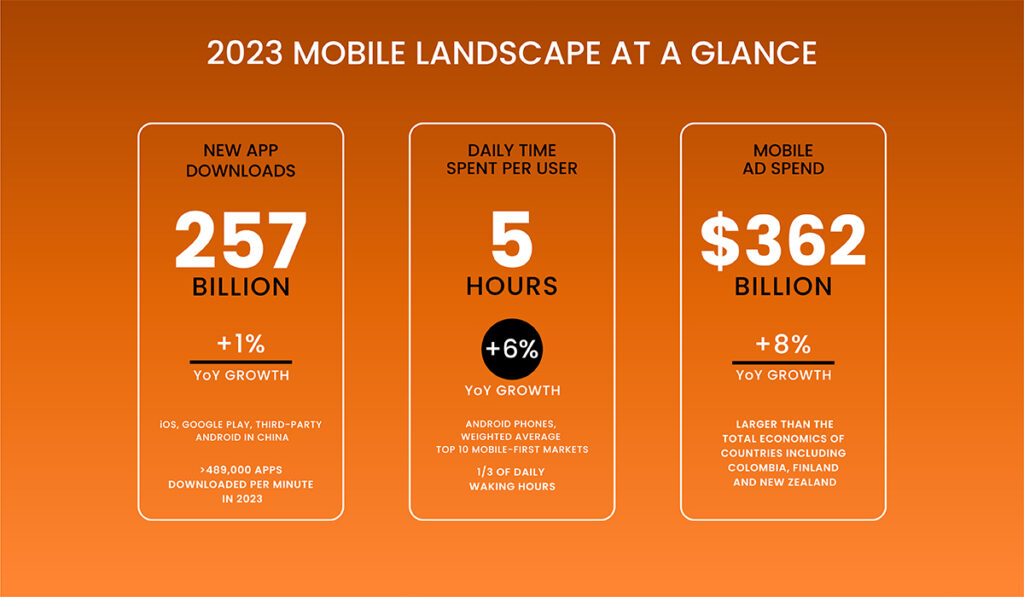
But wait, there’s a twist! Native apps, the kings of performance, are like handcrafted violins – beautiful, powerful, but expensive and time-consuming to build. This is where mobile app development frameworks come in, the digital synthesizers that let you create captivating experiences across Android, iOS, and beyond, without breaking the bank. React Native, Flutter, Ionic, Xamarin, NativeScript, Apache Cordova, and the list goes on, like a diverse orchestra of mobile development frameworks, each with its own strengths and specialties.
So, whether you’re a seasoned developer or a curious app aficionado, join us on this exciting journey of exploring the world of mobile app development frameworks. We’ll unveil their secrets, compare their strengths, and help you choose the perfect tool to compose your next app masterpiece. Also, if you’re looking for the best mobile app development company in Dubai, you’ve found a perfect partner for you!
Ready to elevate your business? Your custom app is just a click away.

Best Mobile App Development Frameworks for Your Business in 2024
In 2024, with the mobile app market booming at a 23.80% growth rate, choosing the right framework for mobile app development is like selecting the perfect instrument – it shapes the melody of your app’s success. The mobile app landscape is undoubtedly booming, offering immense opportunities for developers and businesses alike.
App enthusiasts! Remember, the perfect app framework is the one that helps you create the app you envision. So, explore your options, research, and experiment to find the instrument that will bring your app to life.
What is a Mobile App Development Framework?
Imagine building a house. You wouldn’t start from scratch, hauling bricks and mixing cement. Instead, you’d use a blueprint – a predefined structure that provides the foundation and framework for your masterpiece. Similarly, mobile app development frameworks are your blueprints in the world of mobile app development, streamlining the process of building stunning and functional apps.
So, what exactly is a mobile app development framework? Think of it as a reusable, efficient toolbox packed with pre-built components, essential tools, and ready-made solutions. It’s like a one-stop shop for developers, providing everything they need to:
1. Accelerate Development
No more reinventing the wheel! Mobile app development frameworks offer pre-written code, libraries, and APIs, significantly reducing development time and effort.
2. Write Code Once, Deploy Everywhere
With mobile app development frameworks like React Native or Flutter, you can build a single codebase that works seamlessly across multiple platforms (Android, iOS, etc.).
3. Focus On the Core
Mobile app frameworks handle the foundational infrastructure, freeing you to concentrate on the unique features and functionalities of your app.
But mobile app development frameworks are not just about speed. They offer rich functionality and robustness. They include essential elements like:
- Software Development Kits (SDKs): These pre-built packages provide access to native features of specific platforms, like camera, GPS, or push notifications.
- Programming Interfaces (APIs): These standardized communication channels connect your app to external services and functionalities.
- Code libraries: These repositories of pre-written code snippets offer ready-made solutions for common tasks, like user authentication or data fetching.
- Debugging tools: Mobile development frameworks come equipped with tools to identify and fix bugs efficiently, ensuring your app runs smoothly.
The rise of mobile app development frameworks has democratized app development. You don’t need to be a programming wizard to create an app anymore. Most of the app development frameworks use web-based languages, such as HTML, CSS, and JavaScript, that make them accessible to a wider range of developers.
In a nutshell, a mobile app framework is not only a collection of tools. It’s also a philosophy and a way of thinking that prioritizes efficiency, robust functionality, and cross-platform compatibility. It’s the secret sauce behind the explosion of mobile apps we see today, empowering developers to turn their creative ideas into reality on a global scale.
So, the next time you use a captivating mobile app, remember the silent heroes behind the scenes – the mobile app frameworks that laid the foundation for its creation.
Ready to elevate your business? Your custom app is just a click away.

Why Mobile App Development Framework is important?
Imagine building a skyscraper with just bare hands and a dream. Sure, it might be impressive, but who wants to spend decades chipping away at granite? That’s where mobile app frameworks swoop in like construction helicopters, ready to turbocharge your app development game. Now, let’s find out why mobile development frameworks are the secret sauce to mobile app success:
- Time Travel for Developers: Forget months of coding from scratch. Mobile app frameworks offer pre-built components and libraries, letting you leapfrog the development process and focus on what truly matters: your app’s unique genius.
- Platform Playground: One codebase, multiple platforms conquered! Mobile app frameworks like React Native or Flutter break down the walls between Android and iOS, letting you build one app that rules them all.
- Quality Control, King Size: Mobile app frameworks are like experienced architects, ensuring your app is robust, stable, and bug-free. They provide the structural support to keep your creation standing tall, even in the face of millions of downloads.
- Efficiency Ninja: Say goodbye to repetitive tasks! Mobile app development frameworks automate the boring stuff, freeing you to channel your inner coding ninja on the game-changing features that will make your app shine.
- Community, Your New Tribe: Mobile app frameworks come with built-in communities of fellow developers and experts. No more getting lost in the coding wilderness – you’ll have a support network to answer your questions and cheer you on.
So, ditch the code cave and embrace the framework revolution! It’s the difference between building a sandcastle and crafting a digital empire. With the right framework by your side, you’ll be turning app ideas into reality faster, smarter, and better than ever before.
Types of Mobile App Development Frameworks
The mobile app landscape is a sprawling battlefield, and every developer needs the right weapon to conquer it. But no need to worry, brave warrior, for there are three distinct camps in the mobile app framework arena: each with its strengths and weaknesses, ready to suit your app’s unique needs.
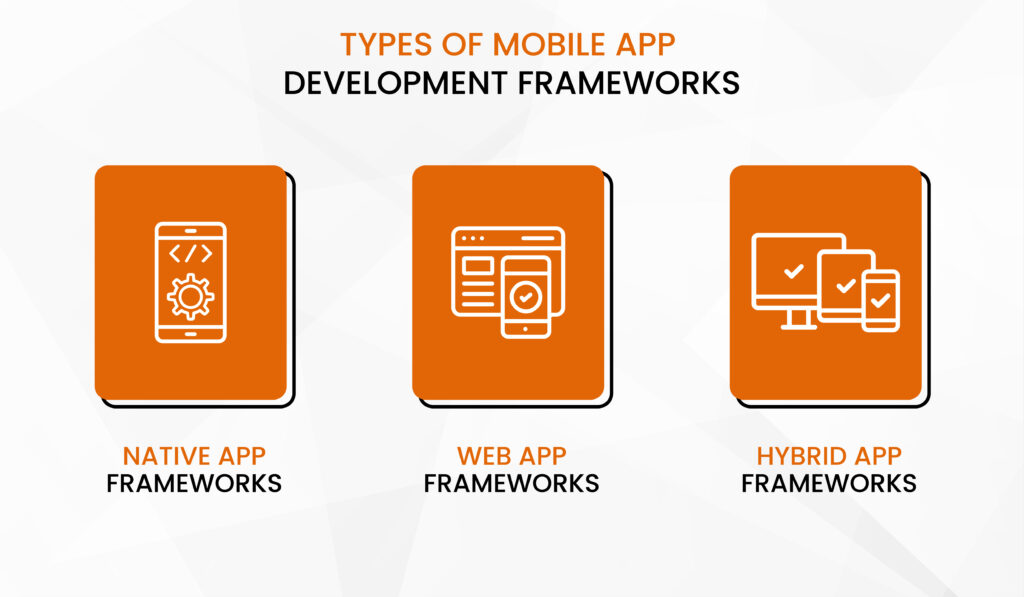
1. Native App Frameworks
Native app frameworks are the heavy hitters, built specifically for a single platform (think iOS or Android). They offer unparalleled performance and access to the device’s full potential, like that smooth camera integration in your favorite photo app. But be warned, these warriors demand dedicated coding for each platform and can be more expensive to develop.
2. Web App Frameworks
Think of web app frameworks as the agile archers, firing their code through the internet and landing on any device with a browser. They offer cross-platform compatibility and faster development cycles, but their arrows might not always hit the mark when it comes to performance and native features.
3. Hybrid App Frameworks
Hybrid app frameworks are the diplomatic negotiators, bridging the gap between native and web technologies. They let you build cross-platform apps with a single codebase, offering a taste of native performance with the flexibility of web development. But remember, like any compromise, they may not deliver the same cutting-edge features or raw power as their dedicated counterparts.
So, which framework should you choose? It depends on your quest!
- For the performance perfectionist: Native frameworks are your champions, offering unparalleled speed and power.
- For the cross-platform crusader: Web frameworks let you conquer any device with your code, but be prepared for some limitations.
- For the budget-conscious builder: Hybrid frameworks offer a balanced approach, letting you build cross-platform apps without breaking the bank.
No matter your choice, remember that the mobile app battlefield is ever-evolving. So, stay informed, choose wisely, and let your framework be your guide as you build the next app masterpiece.
Top 10 Mobile App Development Frameworks for 2024
In this fast-paced digital era, everyone is always competing in a race to build engaging and innovative mobile apps. However, with so many options of mobile app development frameworks available, choosing the right one is a challenging task. That’s why we have delved into the top 10 mobile app development frameworks of 2024, to help you in making an informed decision to choose the best mobile app framework according to your specific needs:
1. React Native

Built and backed by Facebook, React Native is a cross-platform darling, allowing developers to craft beautiful Android and iOS apps using a single codebase. Its reusable components, third-party plugin integration, and rapid development cycle make it a popular choice for high-profile brands like Tesla and Airbnb.
Key Features of React Native
- Cross-platform development: Build stunning Android and iOS apps with a single codebase.
- Reusable components: Share code across platforms for faster development and easier maintenance.
- Third-party plugin integration: Extend functionality with a vast ecosystem of plugins.
- Fast development cycle: Prototype and iterate quickly with hot reloading features.
- Popular with established brands: Used by Tesla, Airbnb, and more.
2. Flutter

Google’s open-source Flutter takes a unique approach, delivering stunning native-like apps with a single codebase. Its comprehensive framework includes widgets, a rendering engine, and robust testing tools, making it a reliable choice for apps like Alibaba and Abbey Road Studios.
Key Features of Flutter
- Native-like app performance: Build beautiful apps with smooth animations and intuitive gestures.
- Single codebase for multiple platforms: Reduce development time and cost.
- Comprehensive framework: Includes widgets, a rendering engine, and robust testing tools.
- Highly customizable: Create unique app experiences with rich UI and animation options.
- Trusted by major players: Used by Google, Alibaba, and Abbey Road Studios.
3. Ionic

Powered by Apache Cordova and Angular, Ionic offers seamless cross-platform development for feature-rich native apps. Its standout feature is the extensive UI component library, featuring elements like filters, forms, and navigation menus, for a truly intuitive development experience.
Key Features of Ionic
- Seamless cross-platform development: Build feature-rich native apps for Android and iOS.
- Extensive UI component library: Craft intuitive and engaging user interfaces with ease.
- Hybrid app capabilities: Combine web technologies with native features for flexibility.
- Large and active community: Access support, tutorials, and plugins readily.
- Popular choice for startups and enterprise apps: Trusted by BMW, Groupon, and more.
4. Xamarin

Owned by Microsoft, Xamarin leverages C# to build high-performance Android, iOS, and other platform apps. Its abstraction layer allows for code sharing, while a vibrant community provides access to APIs, back-end tools, and more.
Key Features of Xamarin
- Native app performance with C#: Build high-performance apps for Android, iOS, and beyond.
- Code sharing across platforms: Reduce development time and effort.
- Vibrant community and ecosystem: Access APIs, back-end tools, and more.
- Microsoft integration: Leverage Visual Studio and other Microsoft tools for efficient development.
- Proven track record: Used by Coca-Cola, Pinterest, and more.
5. NativeScript
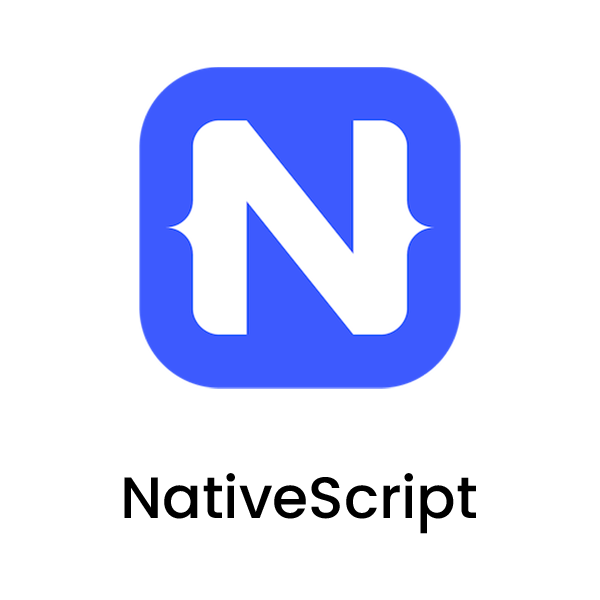
This open-source framework shines for building native apps with JavaScript, TypeScript, and other languages. Its strengths lie in reducing app size and development time, while offering full access to native APIs and robust backend support.
Key Features of NativeScript
- Reduced app size and development time: Build smaller, faster-loading apps.
- Native app feel with JavaScript and more: Utilize familiar languages like TypeScript and Vue.js.
- Full access to native APIs: Leverage device hardware capabilities for a truly native experience.
- Robust backend support: Connect your app to powerful back-end services.
- Open-source and community-driven: Access flexible development options and support.
6. Apache Cordova (PhoneGap)
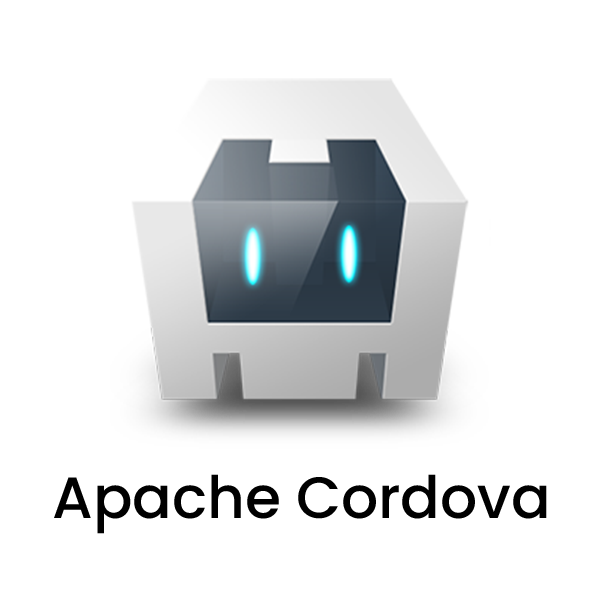
A developer favorite, Cordova is a cross-platform development framework which simplifies the development process using HTML5, CSS3, and JavaScript. Its plugins enable access to device hardware like GPS and camera, delivering a native app feel. Its single codebase and third-party app management tools further streamline development.
Key Features of Apache Cordova (PhoneGap)
- Easy cross-platform development: Use HTML5, CSS3, and JavaScript to build apps for multiple platforms.
- Single codebase for all platforms: Reduce development time and cost.
- Large plugin ecosystem: Extend app functionality with thousands of plugins.
- Open-source and community-driven: Access a supportive community and resources.
- Popular choice for simple apps and prototypes: Used by National Geographic, Uber, and more.
7. Framework7

This easy-to-learn framework allows building native-like apps for Android, iOS, and even desktops using familiar web technologies. Its stunning UI components, Vue.js and React support, and convenient development process make it a compelling choice for beginners and experienced developers alike.
Key Features of Framework7
- Easy to learn and use: Ideal for beginners and experienced developers alike.
- Native-like apps for multiple platforms: Build apps for Android, iOS, and desktops.
- Stunning UI components: Craft beautiful and engaging user interfaces.
- Support for Vue.js and React: Integrate popular JavaScript frameworks for advanced app development.
- Fast and convenient development process: Get your app up and running quickly with fast and convenient mobile app development framework.
8. jQuery Mobile

This hybrid framework focuses on platform-independent apps, utilizing JavaScript and HTML to build responsive websites for smartphones, tablets, and desktops. Its ThemeRoller allows for highly customizable themes, while its stable and customized versions cater to different needs.
Key Features of jQuery Mobile
- Platform-independent apps: Build responsive websites that work on smartphones, tablets, and desktops.
- Leverage familiar web technologies: Use HTML and JavaScript for easy development.
- Highly customizable themes: Create unique app experiences with ThemeRoller.
- Stable and customized versions: Choose the version that best suits your needs.
- Popular for enterprise and internal apps: Used by Ford, Walmart, and more.
9. Sencha Ext JS
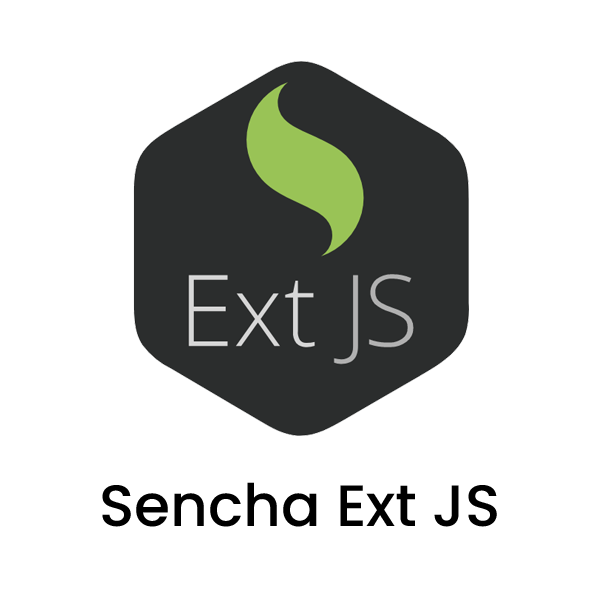
Once divided by platform, Ext JS and Sencha Touch have been merged for a powerful symphony of cross-platform development. This fusion of modern framework enables you to craft seamless desktop and mobile experiences from a single codebase and excels at data-intensive HTML5 applications. Its vast library of pre-integrated UI components, user extensions, and tools, including “Sencha Architect,” accelerate development and deliver exceptional user experiences.
Key Features of Sencha Ext JS
- Data-intensive HTML5 applications: Build powerful and responsive apps for complex data.
- Vast library of pre-integrated UI components: Save time and effort with ready-made elements.
- User extensions and tools: Access a rich ecosystem for additional functionality.
- Sencha Architect: Accelerate development with drag-and-drop features.
- Trusted by leading organizations: Used by Boeing, Siemens, and more.
10. Onsen UI

Ideal for complex web applications, Onsen UI provides a native-like experience across platforms with a single codebase. Its ease of learning, compatibility with various JavaScript frameworks, and comprehensive UI component library make it a powerful choice for building engaging mobile apps.
Key Features of Onsen UI
- Native-like experience across platforms: Build complex web apps with a single codebase.
- Easy to learn and use: Get started quickly with comprehensive documentation and tutorials.
- Compatible with various JavaScript frameworks: Integrate your preferred framework for flexibility.
- Extensive UI component library: Create engaging and intuitive user interfaces.
- Powerful choice for complex mobile apps: Used by Panasonic, Hitachi, and more.
What is the Best Framework for Mobile App Development?
Choosing the “best” framework depends on your specific needs. Consider factors like:
- Target platforms (Android, iOS, etc.)
- App complexity (simple vs. data-intensive)
- Development team skill set
- Budget and timeline constraints
You can extensively research and compare these top 10 mobile app development frameworks to choose the perfect fit for building your dream mobile app and ace the highly competitive mobile market. Moreover, keep in mind that it’s just a starting point. Research each framework further properly while considering your specific needs for an informed and best decision.
Ready to elevate your business? Your custom app is just a click away.

Frequently Asked Questions
What is the best mobile app development software?
There’s no single “best” software, as it depends on your needs and experience. However, following are some popular options:
- Native development: Android Studio (Java/Kotlin), Xcode (Swift) – Offer high performance and full access to device features, but require more coding expertise.
- Cross-platform development: React Native (JavaScript), Flutter (Dart) – Allow building apps for both Android and iOS with a single codebase, good for simpler apps.
- Low-code/no-code platforms: Appy Pie, BuildFire – Drag-and-drop interfaces for building basic apps without coding, ideal for beginners.
What programming language is used for mobile app development?
Although there are many programming languages with different purposes and features, however the popular choices include:
- Native development: Java/Kotlin for Android, Swift/Objective-C for iOS.
- Cross-platform development: JavaScript (React Native), Dart (Flutter).
- Hybrid development: HTML5, CSS, JavaScript with frameworks like Cordova
How to find the best mobile app development company in Dubai?
To choose the best mobile app development company in Dubai, you have to consider various factors like research, experience, expertise, portfolio, client reviews, communication, cost, and project timeline. Invictus Star Technology boasts a skilled team of developers with extensive experience, successful track record, and client satisfaction. We prioritize clear communication, innovative ideas, staff augmentation, and a dedicated approach to deliver top-notch mobile app development services and solutions.
Why mobile app development is important?
In today’s mobile-first world, developing a mobile app isn’t just optional, it’s crucial for businesses to thrive. Mobile app development unlocks a treasure trove of benefits:
- Wider reach: Tap into the ever-growing mobile user base, expanding your potential customer pool exponentially.
- Deeper engagement: Foster interactive experiences that captivate users and enhance customer service, building stronger relationships.
- Brand recognition and loyalty: A well-crafted app becomes an extension of your brand, solidifying your image and fostering user loyalty.
- Revenue boost: Facilitate seamless online transactions and drive sales directly through your app, increasing your revenue potential.
By investing in mobile app development, you’re not just creating a convenient tool, you’re opening doors to a wider, more engaged, and loyal customer base, ultimately propelling your business towards success.
How to choose a mobile app development company in Dubai?
Choosing the top mobile app development companies in Dubai requires a keen eye and a careful evaluation of several key factors. After considering those factors, you have to match their expertise to your project needs, explore their development style, compare pricing models, and review their past projects through case studies and testimonials. This due diligence ensures you choose the best mobile app development company to craft your dream app in Dubai.
How much does mobile app development cost in Dubai?
While the cost of mobile app development can vary in Dubai, we work with you to create a price tag that fits your project perfectly. Complexity, features, platform, and design all play a role, but worry not! We offer competitive pricing tailored just for you. So, leave the guesswork and contact us today. Let’s discuss budget, requirements, and turn your app dream into reality.
What framework to use for mobile app development in Dubai?
The best mobile app framework in Dubai depends on your specific project needs. You can also consider the following factors:
- Native vs. cross-platform: Native offers better performance but requires more work, while cross-platform is faster but has potential limitations.
- Project complexity: Simpler apps might do well with React Native or Flutter, while complex ones might need native development.
- Team expertise: Choose a framework your developers are comfortable with.
What is mobile UI framework?
A mobile UI framework is your secret weapon for building apps faster and smarter. It provides pre-built UI components like buttons and menus, along with handy tools, to streamline app design and development. This ensures a consistent look and feel for your mobile app, while also reducing development time and effort.
What are the components of mobile application framework?
Common components of a mobile app development framework include:
- UI components: Buttons, lists, forms, etc.
- Data access layer: Manages data storage and retrieval.
- Networking layer: Handles communication with servers and APIs.
- Device APIs: Accesses device features like camera, GPS, etc.
What are the benefits of a mobile app framework?
Mobile app frameworks are your secret allies in the fast-paced world of app development. They accelerate development by offering pre-built components, like UI elements and tools, that eliminate tedious coding from scratch. Cross-platform frameworks let you reuse code across platforms, saving you even more time and effort. Also, frameworks ensure a consistent and polished user experience throughout your app, while also providing access to a vast community for support, tutorials, and handy plugins.



